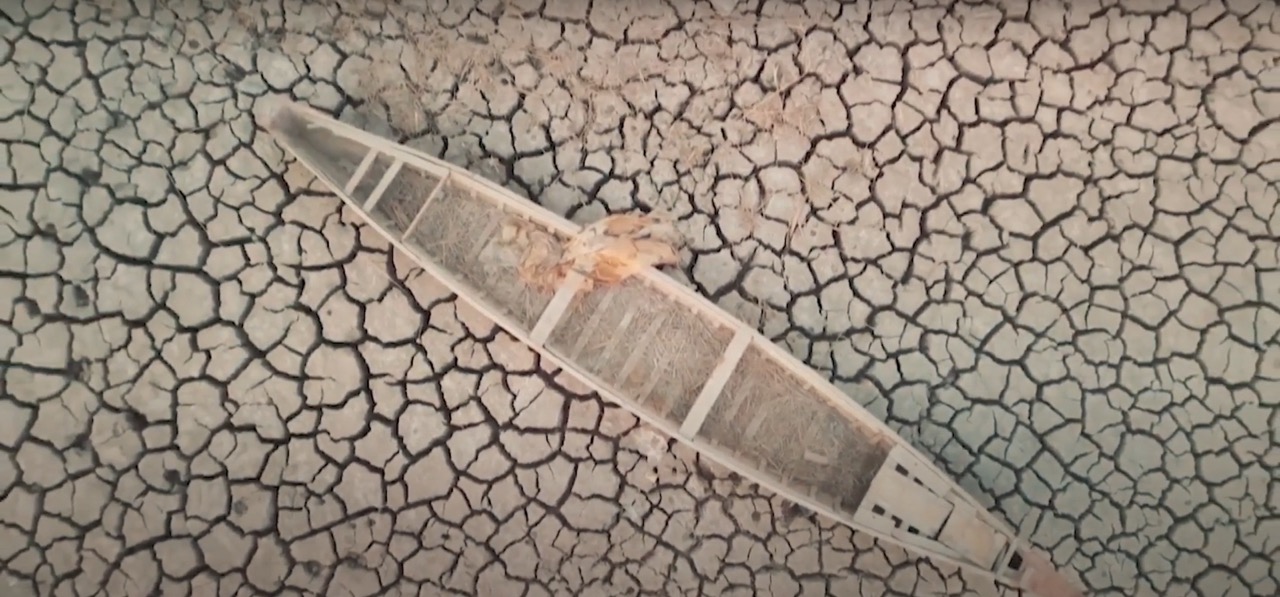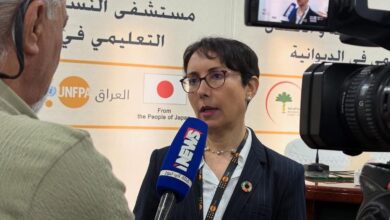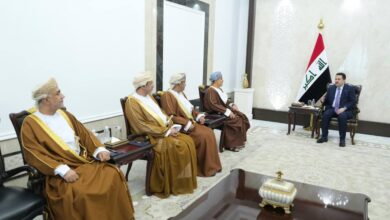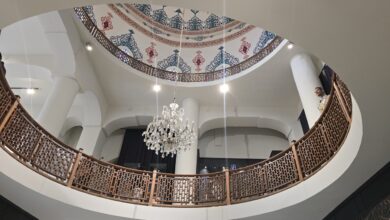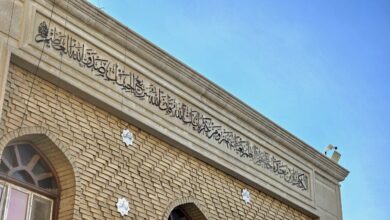In an exclusive interview, Peshtiwan AlDawoudi, the Senior Project Manager and Representative of Berghof Foundation in Iraq, speaks on the climate change issues in Iraq which are leading to displacements of citizens and the responsibility Berghof Foundation is taking on to create a more sustainable environment for agricultural communities in Iraq.
Berghof Foundation stands as one of Germany’s longest-standing mediation organisations, with over 50 years of active involvement in conflict resolution worldwide. Operating as a non-governmental and non-profit entity, it extends its reach across various regions, including the Middle East, where it leads projects in Yemen and Iraq, and maintains a regional hub in Lebanon. Its engagements span beyond the Middle East, including Europe and other continents like Africa. In Iraq specifically, the foundation places a great emphasis on addressing climate change issues. With multiple projects dedicated to climate conflict mediation, it aims to tackle conflicts arising from environmental factors, recognising them as significant contributors to regional tensions.
What are the climate issues that Iraq is facing?
The issue of climate change in Iraq is likely more complicated than you would see in other locations simply because it is multifaceted, and then we can see the issue branching out on multiple different levels. One of the issues that we can see is the visible part of it, which is the change in the weather that the population has seen and suffered from more directly. We can see this happening, for example, in the marshes due to the decreasing rainfalls, which is leading to having less water coming to desertification, to the increase of climate temperatures that we have seen in multiple different locations, even to the loss of greenery. But at the same time, there’s another element of climate change that we can witness, which is related to transboundary. This relates to more the regional dynamics happening within Iraq. More specifically, its relationship to its neighbouring countries, Turkey, Iran, Syria, in which Iraq focuses or at least relies on to receive its waters from the other countries. Now, this has a political dimension to the issue of climate change in the country, specifically for the locations, for example, in the Southern governorates, which relies on the water inflow that comes from the different countries.
This is one of the reasons that Iraq has been suffering more when it comes specifically to water as well. Then there is also another element that we can consider, which is the effects of climate change on climate sensitive and livelihood. We can see this more specifically in the communities that are agricultural and rely on water for their livelihood, specifically when it comes to farming or when it comes to livestock rearing. Then we can see the effects of this very strongly in the Southern governorates, for example, in Basra, for example, in Maysan, in which we have seen migrations happening from the neighbouring governorates of Basra to Basra because of climate change. And then we’ve also seen another layer of migration, an internal level happening from the outskirts of the cities or from the rural areas from Basra to the centre of Basra because of climate change as well.
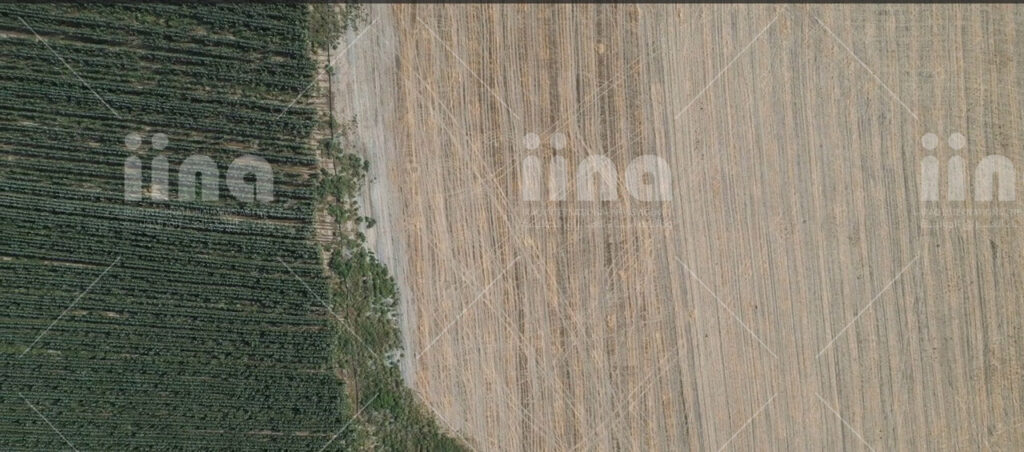
What is Berghof Foundation’s action plan to spread awareness and to avoid this growing risk?
The way that we try to address the issue of climate change from the lens of conflict is through a multi-track that we do have. The first track or the basis of the approach that we do have is to make sure that we have data. We rely on data evidence or a data-driven approach, which includes a research component that we have done in multiple governorates across the Iraq, making sure that we are taking a different number or at least apply the factors into consideration, for example, access, ethnicities, livelihood, locations, so on and so forth, and to really understand what are the dynamics of climate change in relation to conflict across the country of Iraq.
We have done research, for example, in some of the Kurdistan region of Iraq, which includes, in Erbil we had a component in which we did research, but we’ve also focused on the Southern government, for example, Basra. We’ve also focused on some other locations which are somewhere across the two different extremes of the country, Basra and Kurdistan, like Kirkuk, like Kalar, and other locations as well. Following this research component that we did, we were able to identify the drivers of conflict that we have seen, the major components which relates to climate change, and to really understand what are the different issues that these communities face because of climate change and how these different communities are affected differently by climate change due to the dynamics, due to the situation, the social circumstances that they are in.
For example, in some of the regions in which their reliance, their agricultural and their reliance is mainly on agriculture, we have seen issues relating to tensions over water as a common resource in these communities. But we have seen in other locations, for example, like in Basra, in which we have seen larger numbers of migrations, the effect or at least the result of this issue has been migration. We have seen more tensions happening between the internally displaced persons and the host community due to the stream that is happening on the resources which has happened because of the displacement. Through the research, we were able to find this, which led us to our second track, which is engaging the community itself to try and address some of these issues. So, through this track, we’re able to coordinate, to communicate, and contact the communities to understand what are the root causes of the conflict in their communities. Climate change certainly is one of the factors, but there could potentially be other factors because of the history, for example, in the community, because of their livelihood, because of any tension that has happened in the past, which can be related to ethnicity, religion, or politics.
Then we try to understand what are these different dynamics that are happening through the assessments that we do, through the dialogues that we do hold in these locations. Following these dialogues that we do in the communities; we try to engage as much as possible all the different factors of the community. These would be, for example, the vulnerable sites, the women, the youth, the elderly, as well as a general population. But at the same time, we pay careful attention to make sure that we’re also involving the local authorities, because they would have a core responsibility and they would have a core role in making sure that whatever agreement the community reaches to is actually sustainable. Through these different dialogues, we’re able to engage and address these different issues being raised. And then this would naturally lead to different solutions based on the different communities that we’re working in. For example, In Kalar, in which the issue was mainly competition over water from the river known as Balajo Canal, which goes through multiple different villages, approximately 23 to 24 villages. Due to the competition on this water canal, there were tensions happening.
The solution that they reached to, was this water sharing agreement in coordination with the authorities, which would help regulate the way that the communities would reach water as a very valuable resource for them. At the same time, the community would work together to address these violations of water by the different villages through a mechanism which would make it possible for the community to coexist and share this very valuable resource. But in other locations, like Basra, for example, in which the issue was related to migration, the natural result that the community has reached to was a social pact. Now, this social pact helped regulate the different conflicts and tensions by the community and how the community should come together to address the different conflicts arising because of the contact and the different tribals and traditional values of the different communities. Due to this displacement happening, you have people coming from other governments that do have different traditions, that do have different tribal affiliations. Then this culture shock or this culture interactions with the host community could potentially lead to tension. This social pact helped regulate this interaction happening between the host community and the IDP to mitigate some of the tensions happening due to the displacement and to help the community coexist and live together.
Following that, we have a third track, which is engagement on a policy level. The third track would help bring the results or the findings that we have had from the research, from the different engagement with the community, and bring the discussions on a national level. This would be with policymakers, it would be with decision makers, it would be with the international community working on Iraq to try and highlight some of the issues that we have seen and to potentially also engage in discussions on how these issues can be addressed on a larger scale on a national level, as well as try and bridge some of the gaps that already exist between the national authorities themselves, and whether it can be, for example, coordination between the different ministries. It could be about topics related to data sharing between the different ministries. These discussions and round tables that we hold, is done with the purpose of trying to bring together the different major actors working on climate change of the country, whether if it’s international actors like UN agencies or non-governmental organisations, and the local and national authorities from the Iraqi side as well.
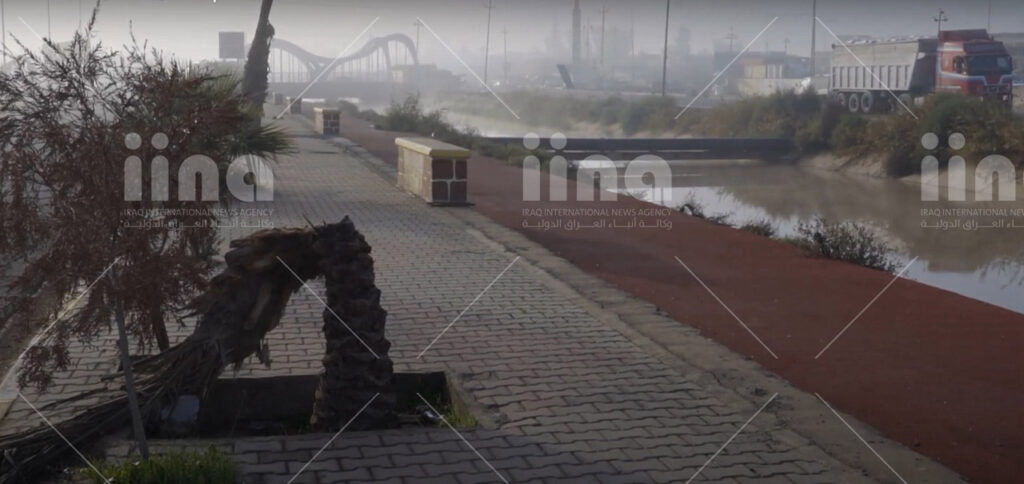
In terms of action plans, have they already started? Have you seen some progress that could lead to a successful path or positive changes?
Yes, most certainly. The project that we are implementing has been ongoing for over two years, almost. And what we have seen in terms of results for this specific project that we are implementing is in four of the different communities that we have worked in, for example, Tal Afar, we have managed to reach a water sharing agreement in which has been endorsed by the community, the community representative, as well as the key stakeholders from the local authorities as well. We were able to reach a similar achievement happening in Kalar, which also led to a water sharing agreement happening within the local community with support from the local authorities. We were able to reach the same result in Hawija and Kirkuk as well, which was also a water sharing agreement between the different communities All these different examples of communities are communities who have been suffering from tensions due to the lack of water as a valuable resource due to climate change. In Basra, and specifically in Hayy Al Fida, we were also able to reach a social pact with the community and with the local authorities to help mitigate the conflict and tension happening between the different community factions due to the displacement that is taking place into the community.
In terms of policy, for example, we have managed to successfully hold more than three round tables between the different key stakeholders from the international communities, which has helped strengthen the coordination happening between the Kurdistan regional government and the federal government, as well as highlight some of the areas which can benefit from strength and coordination between the different actors taking place as well.
Climate change is affecting a lot of aspects of people’s lives. And like you mentioned, there are tribes and rural communities that are displaced outside of their homes, so how has this affected their traditional way of living?
I think the displacement factor, or at least the loss of livelihood, is one of the major issues that climate change has led to and could even increase more, specifically in agricultural communities, which engage in agriculture, livestock rearing, in which it relies mostly on water and also on natural greenery for their livelihood. And there has been quite a lot of loss, specifically in the Southern governorates, due to the desertification, due to the lack of water, which has meant that these individuals have either had to migrate to other governorates to find income-generating opportunities or to adapt and change their livelihood professions to be able to adapt with the changing environment. So, with this, usually comes a period of adaptation. And not all the different communities, not all the different households are in a position to be able to adapt to the changes of climate change. What we have, usually in the non-profit organisations, we use the term of coping mechanisms, which refers to the way that these households would cope to the change that is happening. And it can either be a positive coping mechanism, which in some locations, if they have the luxury to change their professions from agricultural to, for example, more industrial, if possible.
However, it can also be a negative coping mechanism in which some of these vulnerable households would be forced to engage in specific coping mechanisms which are not necessarily very beneficial, but because of their vulnerabilities, it can be one of the ways that they’re coping with a change. This can be, for example, engagement in militarisation or engagement in military, in specific locations. But in other locations, it can take the form of, for example, engaging in activities which might be considered illegal.
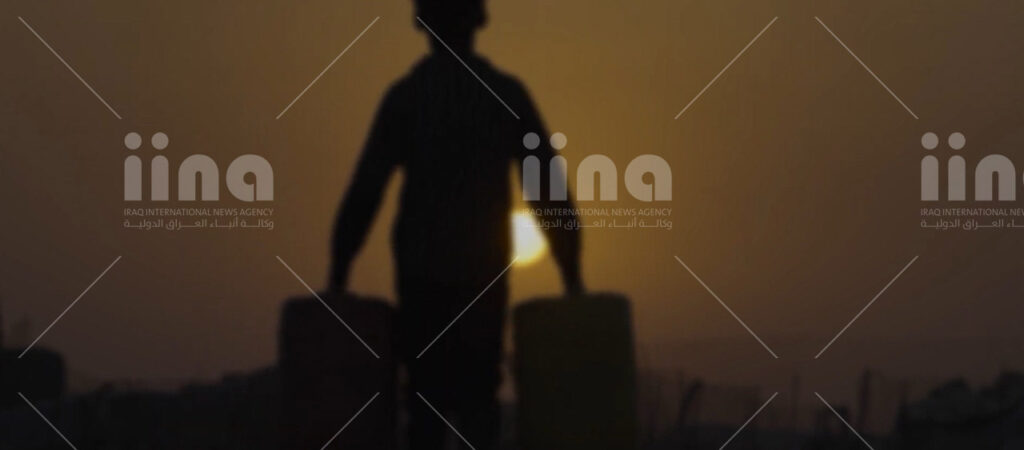
How can people help and get involved with your foundation? Is it a work that’s only internal or also it can be external?
It can be certainly external, the support that can be done in multiple different ways. The contribution of external actors is definitely always welcome, especially when we’re coming to the issue in a country like Iraq, which can definitely benefit from the support of a lot of different actors. The support can be either monetary, if it’s an actor or let’s say a donor, they can definitely support the initiatives or at least provide, allocate more fundings to projects that are addressing the issues of climate change, to initiatives that are supporting policy change on a governmental level, which would help prime the government to be able to cope with the change of climate change. It can also be done in other ways which are not monetary necessarily, for example, through providing expertise to the country. It can also be done through providing in-kind support to the country. For example, for the locations which relies on agriculture or it relies on livestock rearing, there can be a lot of different ways that can be implemented to help cope with the decreasing water as resources. This can be, for example, through introducing new modern ways of irrigations or what we call smart agriculture.
And these different techniques mean that these farmers will be using different techniques which requires less water. Different actors, different countries who do have this expertise can share this expertise within Iraq so it can help these farmers cope with climate change in a different way. And of course, the support of different experts who would also have experience in dealing with climate change that also help these different communities, can also help the government by providing technical support in these different areas which can be lacking.
Why is it important for Berghof Foundation to collaborate with other organisations?
We always place a heavy emphasis on collaborations and coordination because it would feed into a major element of sustainability. But at the same time, it makes the work much more profound and much more meaningful because it would offer you a holistic approach on how to address climate change. For example, for us, for the work that we are doing, we work with a local partner, which is an Iraqi organisation coalition that also works with climate change, that helps offer a more in-depth input into the work that we are doing on the ground. But we also coordinate with a lot of different actors who work on the portfolio of climate change within Iraq. Because as an organisation working within the field, resources are always limited and resources are not infinite. So, the best way to maximise the impact that we can do in the country is to collaborate with different organisations who would potentially be working on climate or in different areas, and we can have a complementary approach. Through synergies, we can offer a more meaningful support to the different communities.
- Published: 12th June, 2024
- Date Taken: 4th June, 2024
- Country: Iraq
- Editor: Elika Bozorgi
- Category: Environment

